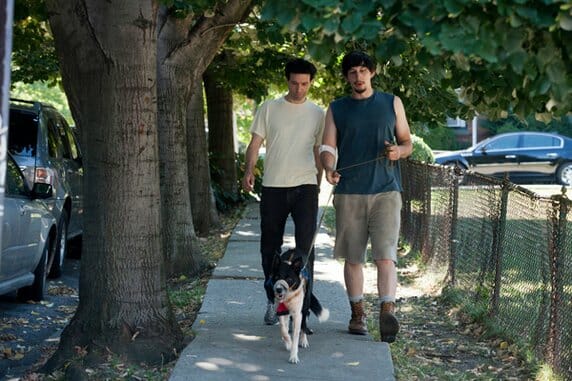Girls: “Boys” (Episode 2.06)

Girls often focuses on the many ways people can be total assholes to each other, but it’s dedicated to redeeming its characters. Look at Adam and Ray: they’ve both gone from intensely unlikable to perhaps the two characters it’s easiest to feel sorry for. “Boys” picks up the ongoing concerns eschewed in last week’s divisive “One Man’s Trash” and shows how far those two characters have come, while also contrasting them with a third guy who might be past the point of rehabilitation.
Ray and Adam’s adventure to Staten Island comprises the first real quality time these characters have shared. You’d think they wouldn’t get along—Ray’s contempt of the people and places around him is pretty comprehensive, and despite Adam’s own issues with anger and depression, it seems counter to his aggressively passionate nature to suffer faux-intellectual, self-hating assholes for long. For a while though they open up and are honest with each other in the way that sometimes only strangers can be. I hope my opinion isn’t shaded too greatly by my own gender, but the first time I watched “Boys” I thought these scenes with Adam and Ray were among the very best this show has ever done.
-

-

-

-

-

-

-

-

-

-

-

-

-

-

-

-

-

-

-

-

-

-

-

-

-

-

-

-

-

-

-

-

-

-

-

-

-

-

-

-








































